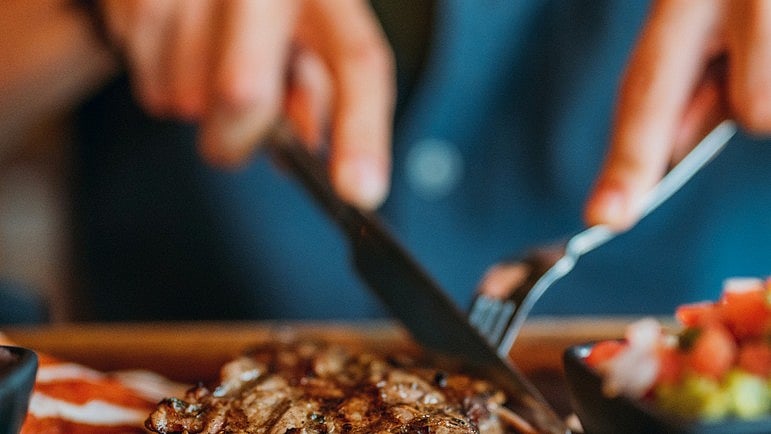
Representative image.
Credit: iStock Photo
“The Englishman’s liberty ends where the Frenchman’s nose begins” is a legal maxim that Himanta Biswa Sarma, a former lawyer and current chief minister of Assam, may do well to remember. His cabinet has recently approved a proposal to make legislative changes in the Assam Cattle Preservation Act, to ban the consumption of beef in all public places including restaurants, hotels, public functions, and community spaces. The proposal itself has been portrayed as an immediate and complete ban, notwithstanding the lack of any current legislative backing. Given the BJP’s majority in the state assembly of Assam, it is quite likely that legislation will soon be passed, but it may be difficult to sustain challenges to its constitutionality through the courts.
While the state of Assam may be competent to ban or regulate the slaughter of cattle within its territorial limits, it cannot control what its citizens eat. The choice of diet is part of the right to privacy which is part of the citizen’s fundamental rights under Article 21 of the Constitution of India. In the nine-judge judgment in Justice Puttaswamy’s case, the Supreme Court held that citizens’ privacy included autonomy in matters of diet, dress, and sexual orientation. Justice Chelameshwar put it rather well when he wrote, “I do not think that anybody in this country would like to have the officers of the State intruding into their homes or private property at will or soldiers quartered in their houses without their consent. I do not think that anybody would like to be told by the State as to what they should eat or how they should dress or whom they should be associated with either in their personal, social or political life.”
The Indian cow may be holy, but there is no conceivable reason to protect her Japanese cousin. Thus, Assam cannot ban the consumption of beef, which is sourced from outside the state. If one were to eat a Wagyu beef steak from Japan, somewhere in Guwahati or Jorhat, it would be beyond the power of the Assam legislature to stop it.
A total ban on public consumption of beef would also violate the principle of proportionality. A ban is not the least restrictive means of cow protection which the state might claim as a legitimate state interest. There is no legitimate state interest in interfering with a citizen's choice of diet. It may tax imports and make beef eating prohibitively expensive, but no government has authority over a person’s body and what he puts on it or into it.
In the guise of protecting the cow, the bull, the buffalo and various other bovines have remained unslaughtered and uncared for, leading to a stray cattle menace that plagues farmers and motorists alike. Assam has a large beef-eating population. In such circumstances, banning the consumption of beef would be manifestly arbitrary.
The only objective of the ban on public consumption is to allow overzealous policemen and vigilante groups to get into restaurant kitchens and wedding halls that serve a meat-eating public. The government’s nose is protruding unconscionably and unconstitutionally into citizens' private choices. It is time to stop policing people’s plates.
Sanjay Hedge, author
(The writer is a senior advocate designated by the Supreme Court of India and an occasional media commentator on public questions. The article reflects his personal views.)